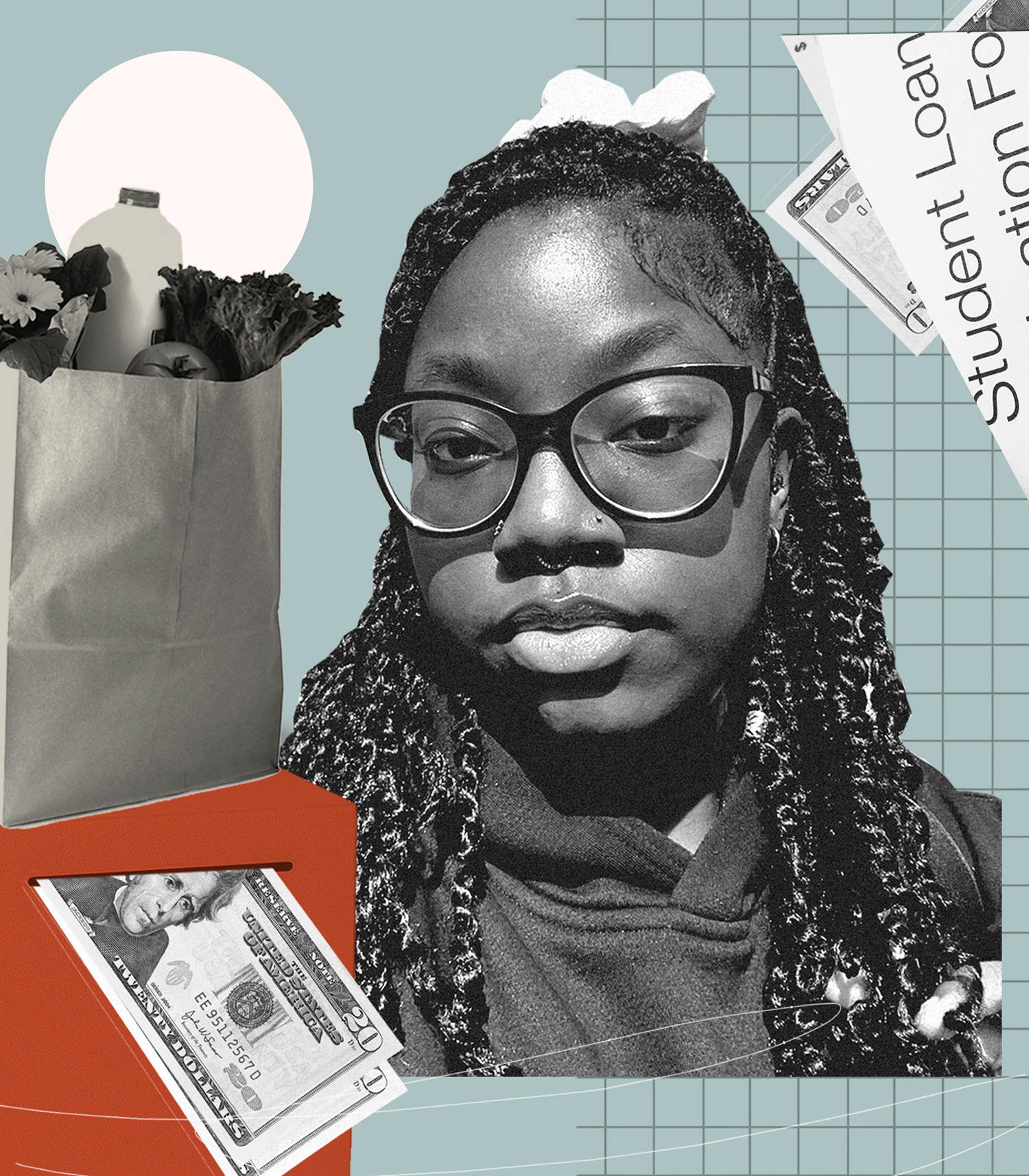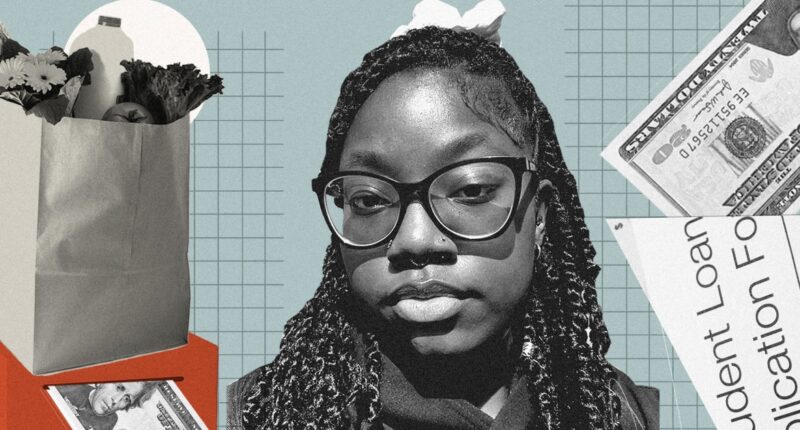
This is part of NBC News’ Checkbook Chronicles, a series of profiles looking at the financial realities of everyday Americans and the challenges they face.
Romona Smith, 20, Nashville, Tennessee
- Undergraduate subsidizing her college costs with shifts at Kroger and McDonald’s.
- Trying to save and budget with little family support.
- Concerned about what another Trump presidency could mean for her financial future.
Romona Smith nearly dropped out of college twice since enrolling in 2022.
The first time, she was about to call it quits after extra shifts at McDonald’s failed to cover her more than $2,000 in out-of-pocket costs at Tennessee State University. Pell grants and Title III loans had funded most of the Seattle native’s $11,800-per-semester out-of-state tuition, but she was coming up short for the rest until a school adviser connected her with vital grant money.
And in January, she almost missed out on her sophomore spring, unable to scrape together the $350 for her flight back to Nashville until an uncle came through with $200.
“Me working wasn’t enough,” said Smith, who described the latter experience as strengthening her resolve. “I was not going to stay home,” she recalled telling herself. “I’m going back to college if it’s the last thing I do.”
Primary source of income: Working full time for $20 an hour at a McDonald’s in Corona, California, over the summer. Once back in Nashville this fall, she’ll return to her part-time job as a clerk at a Kroger grocery store making $16.25 an hour, aiming for at least 32 hours per week.
Living situation: Spending the summer rent-free with her college roommate and family in their five-bedroom home in Corona. On-campus room and board will cost her about $4,600 for the fall term.
Economic outlook: Smith is on her own financially, with virtually no support from her parents. “And that’s not even school-related,” she said. “If I need it, they probably won’t have it.”
Her budget is under pressure both from price increases and from the high interest rates that have helped tame them. She wants to buy a car so she can spend less on Uber rides to and from campus and her job, which can come to around $200 a week. But auto loan rates for new and used vehicles — at 6.7% and 11.9%, respectively — while down slightly from last year’s records, have kept her priced out despite her 670 credit score.
“Inflation has changed a lot of things,” said Smith, who’s been leaning into what she calls “boring” hobbies like crocheting and $12 paint-by-numbers kits she grabs from Target every once in a while. At 3.4% annually, consumer price increases are still running hotter in the four-state census region that includes Tennessee than they are nationally, at 3%.
I’m going back to college if it’s the last thing I do.
Romona Smith, 20, Nashville
Smith is pursuing a double major in social work and psychology, along with a certification as a registered behavior technician to work with people with ADHD or autism. She’s already trying to secure an internship for the upcoming term, and she’s keen to get a head start on learning about advancements in her field, like AI, so she can hit the ground running after graduation.
“I want to be financially stable,” said Smith. “I do want a family eventually. I don’t want to be afraid of bringing people into this world, and this world is changing from what it is already.”
With the election less than four months away, she worries about launching her career under a second Trump administration, citing the Republican nominee’s antipathy toward efforts to boost equity in the workplace and proposals in Project 2025 to roll back diversity and inclusion programs.
Vice President Kamala Harris’ recent ascent to the lead the Democratic ticket has boosted her hopes — “a lot of Gen Z wants to vote now,” she said — but she remains wary: “I’m just getting into position to be prepared for whatever happens.”
Budget pain points: Smith’s main focus is on financing her education, but just paying for routine expenses like her cellular plan is a challenge, too. She has about $24,500 in student loans and $1,700 in credit card debt.
Maintaining a good credit score is also a top concern, as she has built it up since age 18. “But at the same time, the bills are stacking up,” Smith said.
While she has “more than enough credit cards” to finance everyday expenses, “I’m slowly but surely paying them off, rather than already having them paid,” she said. She makes the minimum monthly payment across all four of her cards but hopes to wrestle down her balances further before school resumes.
With her out-of-pocket tuition set to hit nearly $5,000 this fall, Smith wants to avoid another financial Hail Mary. She’s talking to her advisers about aid and plans to continue punching the clock.
Since age 16, Smith said, “I’ve always worked. There wasn’t really a time where I haven’t worked for more than two weeks.” She expects to pick up a second job when she returns to Nashville.
“I’m going to constantly be working, and it’s going to be so draining,” she said.
Trying to save when money is tight: Smith said her savings peaked at around $6,000, but she’s recently had to dip into them so much that the account is basically empty now.
“I am budgeting, don’t get me wrong,” she said, but she’s still experimenting with ways to save.
Back in high school, Smith tried the “100 envelope challenge” — a cash budgeting approach that went viral on TikTok — but found it was too easy to dip into her savings. So instead, she recently bought an “indestructible” piggy bank to stash bills and spare change. Smith said her job at Kroger pays weekly, and she typically puts 50% of her paycheck into her bank account, 20% into the piggy bank as cash, and reserves 30% for spending money.
Smith is among the millions of young Black workers who are disproportionately pushing to save.
In a Bank of America survey of Gen Z consumers published in July, 25% of Black or African American respondents said they were reprioritizing their finances, compared with 16% of respondents overall. At least 20% of Black or African American respondents said they were putting at least some of their paychecks into savings accounts every month, versus 14% of their non-Black or African American counterparts.
“I’m trying to build generational wealth,” Smith said.









